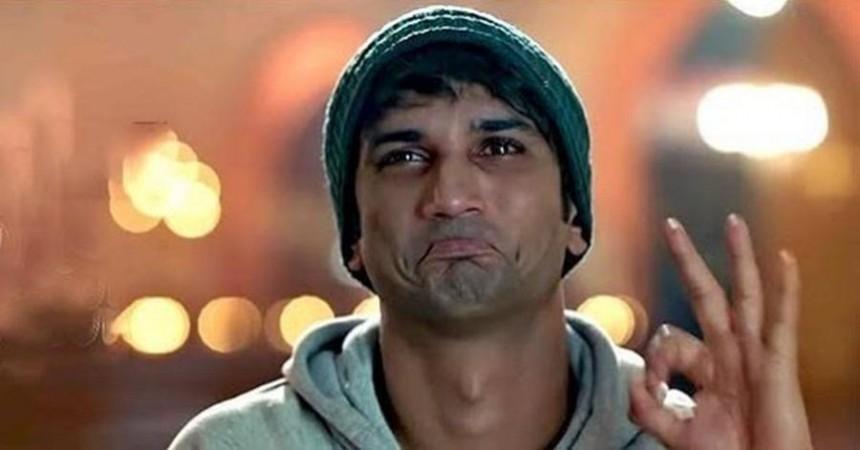
Sushant Singh Rajput had a caste and that is all that matters in the current socio-political milieu of Bihar where, in spite of being just 4 per cent of the total population, Rajputs are a dominant and influential community that can swing elections and the deceased actor belonged to that very community.
Since the actor's mysterious death, BJP MP Rupa Ganguly has tweeted at least one hundred tweets with the hashtag 'CBI for Sushant'. From Tejaswi Yadav of RJD, a pro-reservation party founded by his father and ex-Chief Minister Lalu Prasad, to the ruling JD-U's Chief Minister Nitish Kumar, everyone has paid a token visit to Sushant's home here, if not for anything else, at least to be seen to be standing with the 'cause'.
Even Chirag Paswan, chief of Lok Janshakti Party, a political outfit traditionally practicing the politics of the backward castes in Bihar, vehemently and animatedly demanded that the probe be handed over to the CBI. The question is why is Sushant's caste so important in a state where it constitutes barely 4 per cent of the population?
In today's Bihar, as opposed to the 1990s, the upper castes form a block. In the mid-nineties, militias like Ranvir Sena propped up to 'safeguard' interests of the Bhumihars, an upper caste land owning community against the Rajputs, another upper caste community. They both fought each other and also against the Dalits.
However, with the rising 'Mandal' politics of Lalu Prasad, the two warring communities now see benefit by sticking together and flaunting a collective heft in Bihar's Assembly and governance alike.
Politics is less about facts and more about emotions. And what better emotion than one's lineage in the impending Assembly polls in India's most caste-sensitive state?
Many Bollywood insiders have stated how, as a Rajput himself, Sushant was ashamed at the attack on the 'Padmavaat' movie set by the Karni Sena, a fringe outfit of Rajputs. So much so, he is even said to have dropped 'Rajput' as his surname ever since. But that's all in the past.
Today, in Bihar's political amphitheatre, there is no bigger face of Rajputs than Sushant, who has allegedly been wronged by a system called Bollywood.
To gauge the political might of the Rajputs, a relative minority in Bihar's caste kaleidoscope, one simply needs to revisit the ticket distribution of the 2015 Assembly polls. BJP had fielded 65 upper caste candidates that year, out of which 30 were Rajputs. The 'Mahagathbandhan', comprising the JD-U, RJD and Congress, was banking on the Muslim-Yadav combine, and it too had to field 39 upper caste candidates. 12 of them were Rajputs.
So much so, even the RJD, a party that came to power and kept getting re-elected on the plank of social justice to the marginalised, had to bite the bullet last year when it elected Jagdanand Singh - a Rajput - as its Bihar unit president.
In a span of weeks, two Chief Ministers have met Sushant's father - Bihar's Nitish Kumar and Haryana's Manohar Lal Khattar. Union Law Minister and a fellow Bihari Ravi Shankar Prasad was one of the first to visit his father in Patna. BJP MP Manoj Tiwary, one of the most popular Bhojpuri singers and an influential figure in Bihar and eastern UP, too paid a visit to the late actor's home and demanded the case be handed over to the CBI. All these visits carry a message -- 'Bihari Asmita' won't be compromised and 'we stand with the Rajputs'.
While everyone wants a political pie of this 24/7 media commentary over Sushant, in an almost certain BJP-JDU pre-poll alliance, only these two parties are likely to benefit from the posturing. Lalu Prasad's 15-year rule that belittled, if not decimated, Bihar's upper caste dominance, had risen to power in the 1990s by brazenly challenging the supremacy of the upper castes and thus very finely consolidating the votes of the lower castes. The common refrain of Lalu Prasad was the politics of 'izzat' or respect.
Decades later, all upper castes - Brahmin, Bhumihar, Rajput - have come together en block and see this fight for 'justice for Sushant' as their own existential battle for dominance in Bihar, which the BJP and its allies are more certain to exploit electorally than parties that had swept to power challenging that very dominance decades ago.
















